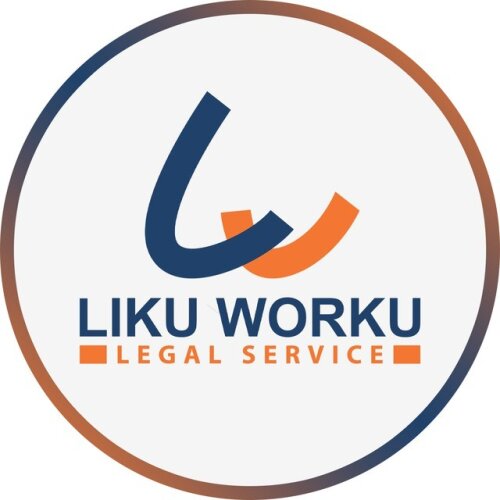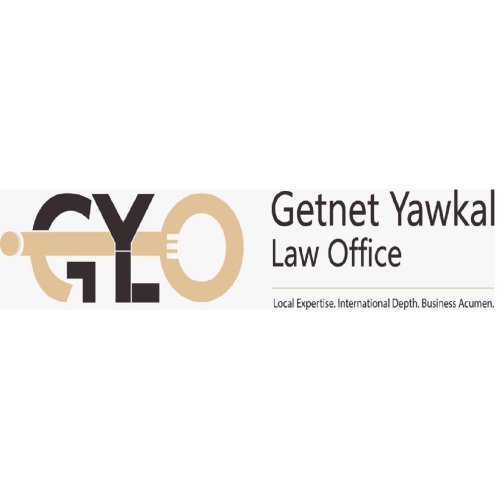Best Due Diligence Lawyers in Ethiopia
Share your needs with us, get contacted by law firms.
Free. Takes 2 min.
Or refine your search by selecting a city:
List of the best lawyers in Ethiopia
About Due Diligence Law in Ethiopia
Due diligence in Ethiopia refers to the investigative process companies or individuals conduct before entering into a transaction or agreement to assess the various financial, legal, and operational affairs of the other party. This procedure is essential in minimizing risks and ensuring that all parties have a clear understanding of the business obligations and liabilities involved. Ethiopian law does not provide a standalone framework for due diligence but incorporates it into various regulatory aspects such as commercial law, tax law, and investment law. Conducting thorough due diligence is crucial for compliance and informed decision-making in the Ethiopian business environment.
Why You May Need a Lawyer
The intricacies of due diligence can be overwhelming, and professional legal advice may be necessary in several situations:
1. **Mergers and Acquisitions:** Legal help ensures you understand all obligations and potential liabilities.
2. **Foreign Investments:** Understanding regulatory requirements and compliance in Ethiopia can be challenging for foreign investors.
3. **Real Estate Transactions:** Lawyers can help navigate property laws and confirm ownership, thus avoiding legal complications.
4. **Corporate Compliance:** Ensuring that all business operations meet Ethiopian legal standards requires professional oversight.
5. **Tax Assessments:** Proper tax due diligence can save significant costs and prevent future legal issues.
Local Laws Overview
Several key aspects of Ethiopian law are relevant to due diligence:
1. **Commercial Code of Ethiopia:** Sets the foundational rules for business operations, company registration, and corporate responsibilities.
2. **Investment Proclamation:** Defines regulations for foreign and domestic investment, including licensing and operational mandates.
3. **Tax Legislation:** Governs taxation practices, including the assessment and payment requirements for businesses and individuals.
4. **Real Estate Laws:** Dictate property ownership rights and must be adhered to in transactions involving land or property.
5. **Environmental Laws:** Businesses must ensure compliance with environmental regulations to avoid penalties.
Frequently Asked Questions
What is due diligence?
Due diligence is an investigation or audit of a potential investment or product to confirm all facts, such as reviewing financial records.
Why is due diligence important in Ethiopia?
It helps minimize risks by thoroughly understanding legal, financial, and operational aspects of a transaction in the context of Ethiopian law.
What are the main components of due diligence?
Financial review, legal compliance, market evaluation, and operational assessments are key components.
Who performs due diligence?
Usually performed by business analysts, accountants, or lawyers specializing in the respective industry or market.
Is due diligence legally required in Ethiopia?
While not explicitly required by law, it is strongly recommended as a best practice for major business transactions.
How long does the due diligence process take in Ethiopia?
The duration can vary from a few weeks to several months, depending on the complexity of the transaction.
What risks are involved without due diligence?
Poor assessments can lead to unforeseen liabilities, regulatory non-compliance, and financial losses.
How much does it cost to conduct due diligence in Ethiopia?
Costs vary widely based on transaction size and industry but typically involve professional fees for legal and financial advisors.
Can I do due diligence myself?
While it is possible, hiring professionals with expertise in Ethiopian legal and financial systems can provide a more thorough evaluation.
What should I look for in a due diligence lawyer in Ethiopia?
Seek out lawyers with experience in Ethiopian business law, familiarity with your industry, and a track record of successful due diligence processes.
Additional Resources
For further assistance, consider reaching out to:
- The Ethiopian Investment Commission: For guidance on investment regulations.
- Ethiopian Chamber of Commerce: Offers resources for understanding commercial laws.
- Local legal associations: For recommended lawyers or firms specializing in due diligence.
- Ministry of Revenue: For insights on tax compliance and due diligence.
Next Steps
If you need legal assistance in due diligence, follow these steps:
1. **Identify your needs:** Clearly outline what you seek to achieve through due diligence.
2. **Research professionals:** Look for qualified legal experts with experience in Ethiopian business transactions.
3. **Schedule consultations:** Meet with potential lawyers to discuss your case and assess their expertise.
4. **Engage a lawyer:** Select a professional who meets your requirements and can help you navigate the process effectively.
Lawzana helps you find the best lawyers and law firms in Ethiopia through a curated and pre-screened list of qualified legal professionals. Our platform offers rankings and detailed profiles of attorneys and law firms, allowing you to compare based on practice areas, including Due Diligence, experience, and client feedback.
Each profile includes a description of the firm's areas of practice, client reviews, team members and partners, year of establishment, spoken languages, office locations, contact information, social media presence, and any published articles or resources. Most firms on our platform speak English and are experienced in both local and international legal matters.
Get a quote from top-rated law firms in Ethiopia — quickly, securely, and without unnecessary hassle.
Disclaimer:
The information provided on this page is for general informational purposes only and does not constitute legal advice. While we strive to ensure the accuracy and relevance of the content, legal information may change over time, and interpretations of the law can vary. You should always consult with a qualified legal professional for advice specific to your situation.
We disclaim all liability for actions taken or not taken based on the content of this page. If you believe any information is incorrect or outdated, please contact us, and we will review and update it where appropriate.
Browse due diligence law firms by city in Ethiopia
Refine your search by selecting a city.

















